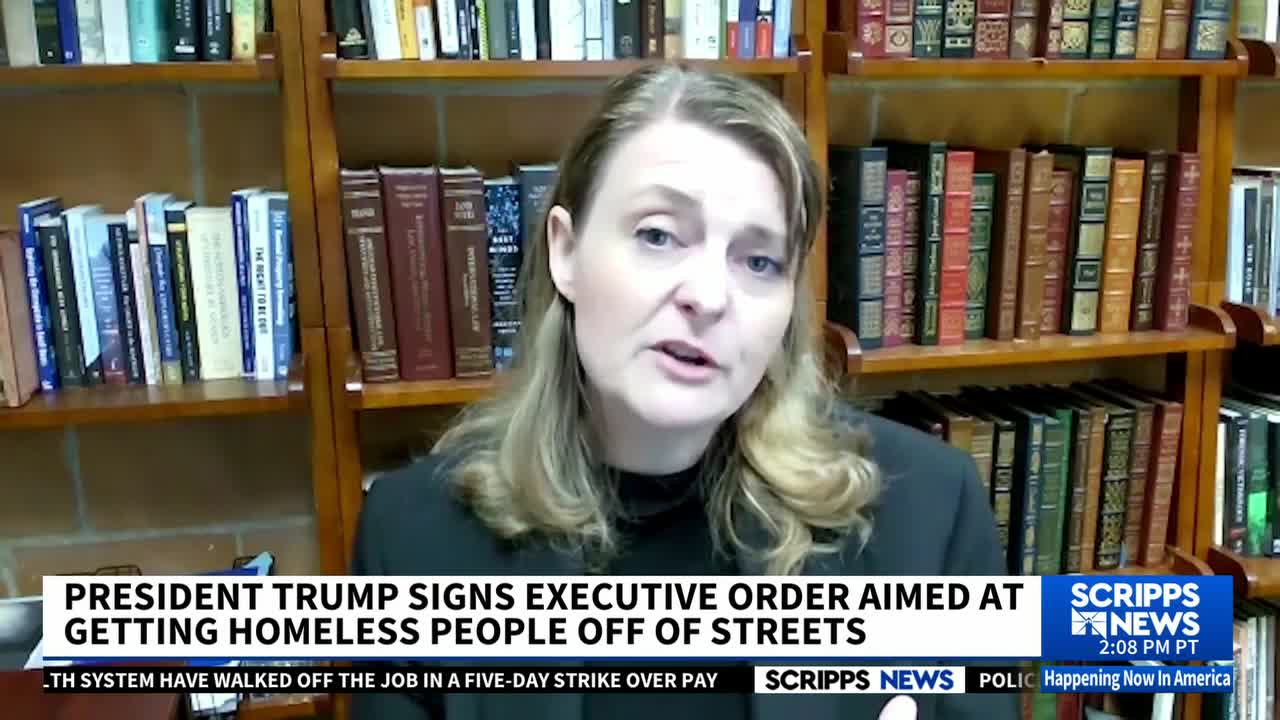President Trump signed an executive order Thursday aimed at dramatically changing how the U.S. approaches homelessness.
It proposes changes to make it easier for states and cities to remove homeless individuals from the streets and provide them with mental health and addiction treatment.
The order pushes for increased "use of civil commitment," for homeless individuals deemed a risk to themselves or others.
The order also prioritizes federal funding for cities and states that crack down on open drug use, urban camping, loitering, and squatting.
The move fulfills a campaign promise from the President.
"When I'm back in the White House, we will use every tool, lever, and authority to get the homeless off our streets. We want to take care of them, but they have to be off our streets," Trump said in a 2023 campaign video.
Opponents of the executive order say it could make homelessness worse.
"I can't underscore how catastrophic it is," said Jesse Rabinowitz, the campaign and communications director at the National Homelessness Law Center.
Rabinowitz says the order doesn't address housing affordability, which he says is the main driver of homelessness. He also worries the vagueness in some parts of the order could lead to mass institutionalizing of the mentally ill.
"The executive order doesn't define what mental illness is. It doesn't define who is set to make that diagnosis. Is it a police officer who's not trained in social work?" Rabinowitz said.
Lisa Dailey, the executive director of Treatment Advocacy Center, says she understands that concern, but believes sometimes outside intervention is best for those suffering with extreme mental illness.
"The people who have the greatest stake in ensuring that their loved ones actually receive care understand the need for there to be some capacity to intervene earlier," Dailey said.
RELATED STORY | California Gov. Gavin Newsom urges cities and counties to ban homeless encampments
Last year, more than 770,000 people experienced homelessness in the U.S., the most on record, according to an annual report from the Department of Housing and Urban Development.
Proponents of the order say that figure is proof that policy to address homelessness needs to change.
"When a problem gets as big as it has ever gotten by the normal ways in which we measure that, and a new administration comes in, you get to change the reigning policy," said Stephen Eide, a senior fellow with the right-leaning Manhattan Institute.
Eide says the implementation of new policies will be challenging, because it needs buy-in from both federal and local stakeholders.
The order comes a year after the Supreme Court ruled cities can ban homeless individuals from sleeping outside. The justices said making that illegal would not violate the Eighth Amendment, which prohibits cruel or unusual punishment.




